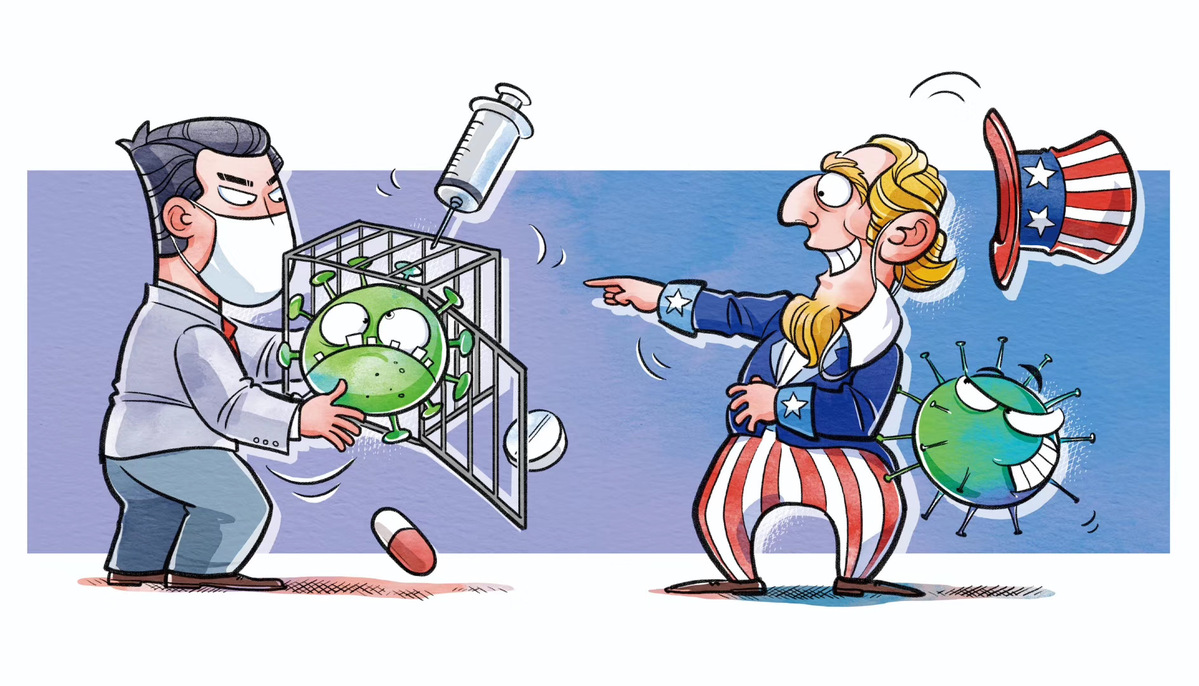Businesses suffer from customers' coronavirus fears


The Chinese New Year and the days immediately following it usually have been a hectic time for Chinese restaurants in Southern California, but things were a little different this year.
"We started seeing business decline just a couple of days after the Chinese New Year on Jan 25," said Tony Wong, a supervisor of a Cantonese restaurant in Rosemead, California.
The novel coronavirus outbreak and ensuing panic have caused a significant decline at Chinese-owned businesses across the region. Some companies have taken drastic measures to prepare for major losses.
Business at Wong's restaurant has dropped nearly 50 percent, he said. If it continues that way, he will consider laying off employees. Wong believes that unfounded fear about the coronavirus is to blame.
Michael Liu, owner of Dagu Rice Noodle, a restaurant in Arcadia, California, a city with a large Chinese population, told China Daily that Chinese-owned businesses at the plaza where his restaurant is located have experienced a steady decline in customers since the outbreak started.
Liu said he is closely monitoring the situation but is not considering laying off staff. He remains optimistic the downturn won't last.
Liu said there was "no need to panic" and that his restaurant has taken precautionary steps like putting out hand sanitizers.
Winnie Peng, owner of Ikka Sizzling Pot, a nearby restaurant, said income at her business is down 30 to 40 percent since the outbreak and she is expanding takeout offerings because more customers tend to prefer it.
Chinese restaurants that specialize in food such as hot pot and dinner parties have taken the biggest hit, because many people have been avoiding large gatherings, Peng said.
Peng said business also has declined significantly at her friend's Chinese takeout eatery in Altadena, a city with a 5 percent Asian population.
Many Chinese-owned restaurants in the area have experienced 40-50 percent drops in business, said Jack Chen, president of the US Chinese General Chamber of Commerce.
Elsewhere, a company that arranges Chinese-language bus tours of the sights in Manhattan is dealing with as many as 300 cancellations from Chinese tourists who cannot come to New York, The New York Times reported.
Chen said the companies most impacted are travel agencies and import-export businesses.
"Several of my members' companies in the travel sector have basically ceased operations. Some of them have already switched careers; others are still on the fence waiting to see what happens with the epidemic," he said.
He urges the Chinese business-owners to remain calm, adding that the chance of contracting the coronavirus is very low in the US.
However, Chen also cautioned Chinese business-owners to prepare for economic consequences. "If your business operation is reliant on China, you must pay close attention to it. At the very least, you must find a backup plan," he said.
Jackie Wei, the CEO of Sanberd Inc, a company in Walnut, California, focused on cross-border e-commerce and overseas warehousing, said that because turnaround time is crucial in his industry, the virus' impact has been severe.
"Our industry requires that there must be sufficient stocks of goods, so a very serious problem we are facing is that our customers' inventories are almost out of stock," Wei said.
One reason for a delay in deliveries is disruption in global logistics due to travel restrictions and flight cancellations. Then there is the suspension of factory operations in China.
"Efficiency and time play a key role in the cross-border e-commerce industry. Let's say you are ranked as the No. 1 seller today in the market, but when you are out of stock for three days, then your ranking might fall below 50. When that happens, it's very difficult for your business to recover," Wei said.
Similar fears have driven customers away from Chinese-owned businesses across the US. Workers and owners at restaurants in Manhattan's Chinatown reported that business had dropped 50 to 70 percent, according to The New York Times.
Debbie Chen, the part-owner of the Shabu House restaurant in Houston, told reporters at local TV station KPRC2 that her customer base has been cut in half, and it's hurting her bottom line.
San Francisco's Chinese Merchants Association spokesperson Edward Siu told KPIX-TV that foot traffic on the streets of Chinatown was down by 50 percent.
Some members of Toronto's Chinese community said that fears about the virus have taken a financial and emotional toll on their businesses.
In response, a group walk was held in Toronto's Chinatown to support business owners in the area. Dozens of people poured into shops to make purchases and offer support.
"I see the ways in which bias and fear can really manifest in a very tragic way within the public realm," organizer Jay Pitter told CTV News.
A "Together We Win" campaign was launched to revitalize Chinese Canadian restaurants hit by massive losses.
According to the organizer from the Chinese Cuisine & Hospitality Association of Canada, the sudden drop in business for many Chinese Canadian restaurants is "disastrous". Some have experienced sales drops as much as 80 percent.
To prevent any further harm to the industry, the association along with a number of Chinese restaurants have taken action to assure public confidence in the restaurants.
"Businesses across the city saw revenues drop as people allowed their fear and prejudices about (the virus') transmission to drive them away from Chinese-operated businesses," said campaign co-founder Dr Ken Ng.
In a public statement on Feb 8, the Los Angeles County Department of Public Health urged the public to "focus on facts, not fear". It also noted "rising reports of reduced patronage of Chinese owned businesses, bullying and stigmatization on school and college campuses, as well as rampant xenophobia on social media".
The department reiterated that the novel coronavirus is "not currently spreading in Los Angeles nor in the United States", and encouraged residents to feel comfortable eating and shopping at Chinese-owned businesses.
"Discrimination targeting our Asian American and Chinese American friends, neighbors and businesses is harmful to our entire community," Department of Public Health Barbara Ferrer said in the press release.
"This is not the time for the perpetuation of stereotypes and misinformation about the novel coronavirus. Public health encourages everyone to continue to enjoy all that our Asian communities have to offer," she said.
Rena Li in Toronto contributed to this story.
- 'Ambiguous warning', decisive action to stop the virus
- "Something's not right here folks" | A look at USA 2009 H1N1 Virus compared to China 2020 Coronavirus
- Companies in 'operations' to support medical workers amid virus outbreak
- SCIO briefing on the provision of key medical supplies and daily necessities for epidemic prevention and control
- Travel ban strands students, businesspeople in 2 countries




































